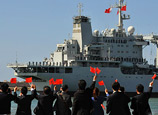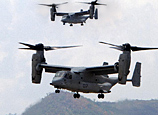
On one side of the scale of the United States' diplomacy to China is contact and cooperation, and on the other side is prevention and containment. In which scale to put one or two weights is what the U.S. presidents have considered in the last twenty or thirty years. Obama, already beginning his second term, faces the same choice.
From Obama's swearing- in to the U.S. Secretary of State John Kerry's visit to China, judging from the messages of the U.S. side, we can come to a conclusion that weights in the scale of contact and cooperation may be more. At least, Washington has shown such desire. This is a good beginning, which is determined by the overall situation of Sino-US relations.
There are two background factors in promoting Sino-US ties entering new historic period. One is that power balance of the two sides has changed and will continue to change significantly; the other is political and economic patterns in Asian-Pacific and global regions have undergone great transformation and new order is in the formation.
The establishment of the new type of Sino-U.S. relationship coincides with Asia-Pacific region's transformation to new order and it also provides basic guarantee for the success of the transformation. Getting clear understanding of reality and accurately holding their position during the transformation process decides whether the new type of relationship between the two big powers can establish or not.
Actually, the process of looking for their positions has begun, which are shown in the two counties' way of thinking when dealing with some hot issues, including bilateral issues involving economy, trade and investment, as well as regional and global issues such as trade protectionism, Korean Peninsula situation, Syrian political situation, Iran nuclear crisis, anti-terrorism and global warming. All these issues are directly or indirectly related with the interests of China and the United States, or need them to make a decision, stipulate a rule and determine a road map.
Obviously, courage is not enough to push Sino-U.S. relations to continue to move forward. It needs wisdom, in particular, great wisdom to solve difficult problems. It is crucial for the Sino-U.S. ties in the next stage to break through the limit in ideology, political system and traditional historical views, seek common grounds and ease or even solve the difficult issues.
Currently, another most important thing is to do more to help solve issues, instead of aggravating the issues, the kind of things the former U.S. Secretary of State Hilary Clinton had done. She said during her visit in Vietnam that to maintain freedom of navigation in South China Sea is the national interest of the United States and repeatedly stressed the "rebalance" within the Asia-Pacific region. By hyping up the South China Sea issue, she increased China's distrust to the United States. Meanwhile, she harmed the positive interaction of both countries and greatly increased the regional countries' concerns about "choosing sides".
 |
















 Death toll rises to 14 in central China hotel fire
Death toll rises to 14 in central China hotel fire


![]()
